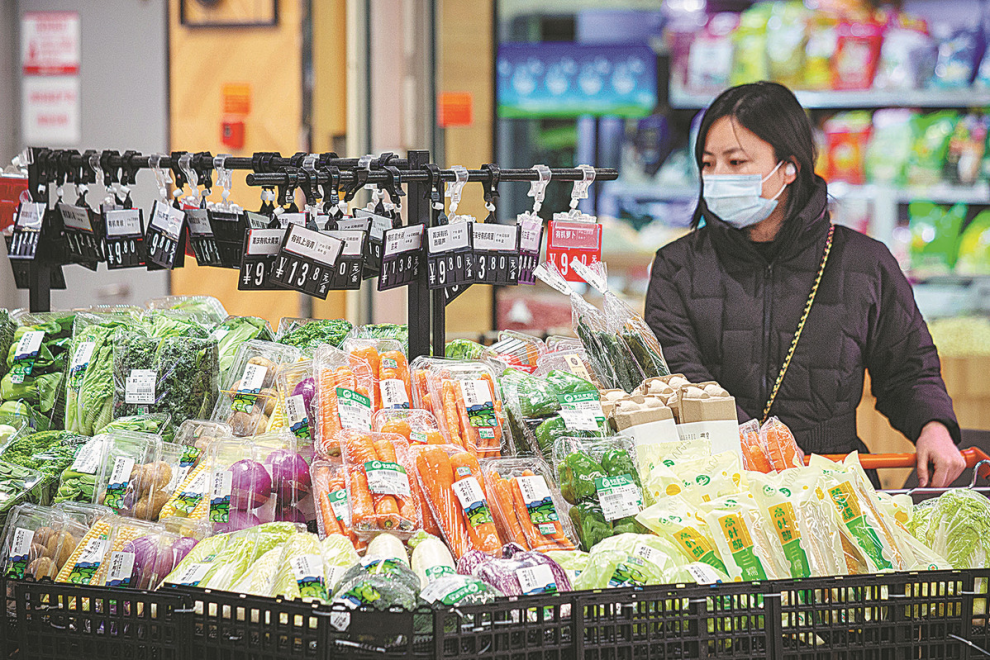But signs of a weak recovery are still visible in sales of clothing and household appliances, and Moody’s expects monthly inflation to average 2.5 per cent this year and rebound to 3.5 per cent next year.
“China’s reopening won’t be a silver bullet,” Cruise said. “Although 2023 is looking a lot more promising than what we had previously expected, the year is set to be bumpy; it will take time for households to truly shake the Covid-19 blues.”
China’s core consumer inflation rate, excluding the volatile prices of food and energy, rose by 1 per cent in January compared with a year earlier, up from 0.7 per cent in December.
Within the CPI, food prices rose by 2.6 per cent and non-food prices rose by 1.2 per cent last month, year on year.
The overall CPI increase was slightly below expectations, having been projected to rise by 2.3 per cent last month, according to Chinese financial data provider Wind.
Meanwhile, the producer price index (PPI), which reflects the prices that factories charge wholesalers for products, fell by 0.8 per cent in January, year on year, down from a year-on-year fall of 0.7 per cent in December.
“The PPI declined by 0.4 per cent [in January, month on month], which is a bit surprising but seems to suggest that the manufacturing sector is not yet running at a full speed,” said Zhou Hao, chief economist at Guotai Junan International.
Zhou also said that the rise in the CPI index was a temporary holiday-induced effect, and he expects it will fade in February. He also said it would be premature to expect a surge in China’s well-anchored inflation over the short term.
There have been market concerns about inflation surging in China following its reopening Ding Shuang, Standard Chartered
Ding Shuang, head of Greater China economic research at Standard Chartered in Hong Kong, said that the mainland’s CPI inflation could average 2.3 per cent a month this year, as its stable supply chain, ample capacity and labour supply will help curb the inflationary pressures from rebounding demand.
“There have been market concerns about inflation surging in China following its reopening, with spillover effects on the rest of the world,” Ding said, but data suggests January’s increase “was driven more by the Lunar New Year effect than the reopening”.
While Capital Economics said factory-gate prices continued to fall as commodity prices declined and supply-chain disruptions waned, demand for travel and services surged following the lifting restrictions.
“We expect [inflation] to rise further in the near-term, though not by as much as in many other countries when they reopened,” the London-based research business said. “As such, inflation probably won’t be a near-term constraint on the People’s Bank of China’s ability to ease policy.”
In its statement on Friday, the NBS attributed the rise in consumer prices last month “to factors including the Chinese New Year and eased pandemic-prevention and control policies”.
“In January, the overall prices of industrial products continued to fall, influenced by factors such as fluctuations in international crude oil prices and the downward trend in domestic coal prices,” the NBS added.
Source: scmp






































